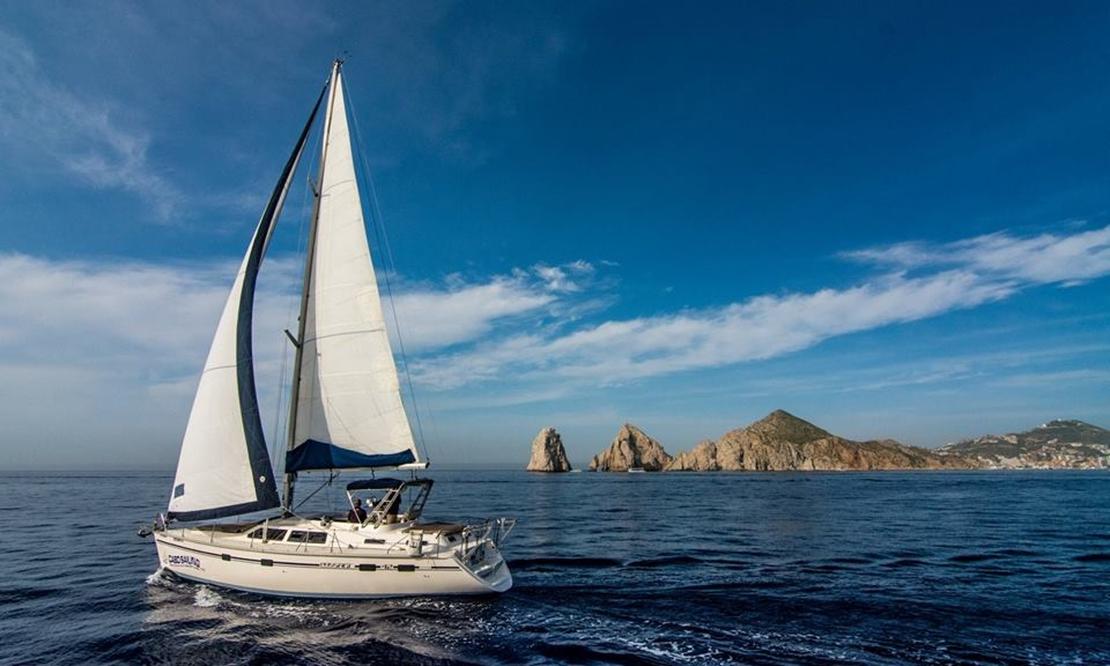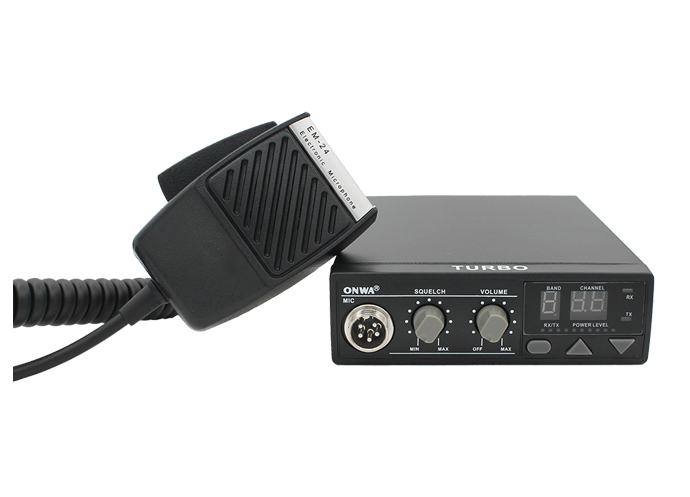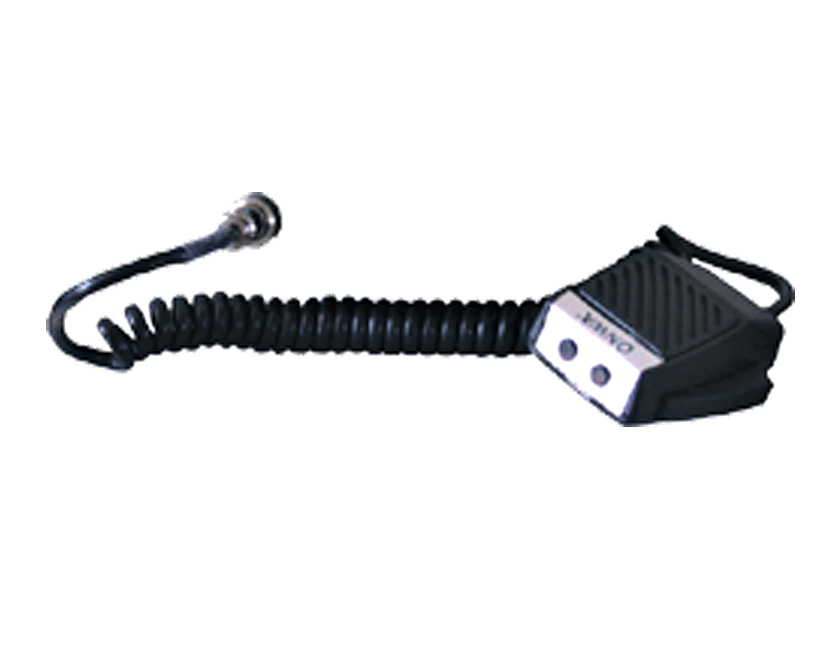What are Marine CB Radios?
Marine CB (Citizens Band) radios, also known as marine VHF (Very High Frequency) radios, are communication devices specifically designed for marine use. They operate on different frequencies and channels than land CB radios. These radios are crucial for facilitating communication on the water, particularly between boats and ship-to-shore communication. Marine CB radios are equipped with multiple channels reserved exclusively for distress signals and maritime communication. They have features that allow both short and long-range transmission, with some models even offering GPS functionality and Digital Selective Calling (DSC) for emergencies. Used for a variety of purposes, from calling for assistance in a maritime emergency to communicating with ports, other ships, or maintaining contact with on-shore parties, boat CB radios are an essential piece of equipment for any vessel. They are also crucial for receiving weather updates and warnings. 




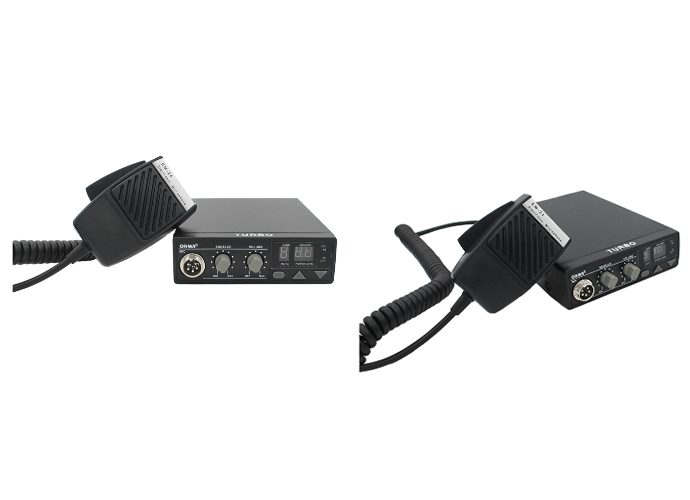
The Importance of Marine CB Radios
The significance of marine CB radios in ensuring safety and efficient communication during boating adventures cannot be overstated. These devices serve as a critical lifeline between vessels and between vessels and shore, making them indispensable tools for anyone venturing out on the water.Essential Functions of Marine CB Radios
- Emergency Communication:
- Marine CB radios stand out as the primary mode of emergency communication on the water. In situations where immediate assistance is required, these radios provide a direct line to the coast guard and other vessels. The ability to instantly send out distress signals can be the difference between a swift rescue operation and a potentially dangerous situation.
- Weather Updates:
- Staying updated on weather conditions is vital for safe boating. Marine CB radios offer access to NOAA weather channels, providing real-time weather alerts and forecasts. This feature allows boaters to make informed decisions, whether it’s seeking shelter before a storm or understanding the best times to set sail.
- Navigational Assistance:
- Beyond emergencies and weather updates, marine CB radios are invaluable for navigational support. Communicating with marinas, locks, and bridges is often necessary for safe passage. These radios facilitate these communications, ensuring smooth sailing and adherence to maritime regulations.
- Community and Support:
- The boating community heavily relies on marine CB radios for day-to-day communication. Sharing information about fishing spots, hazards, and local points of interest fosters a sense of community and support among boaters. Whether you’re seeking advice or offering assistance, marine CB radios provide a platform for mutual help among seafarers.
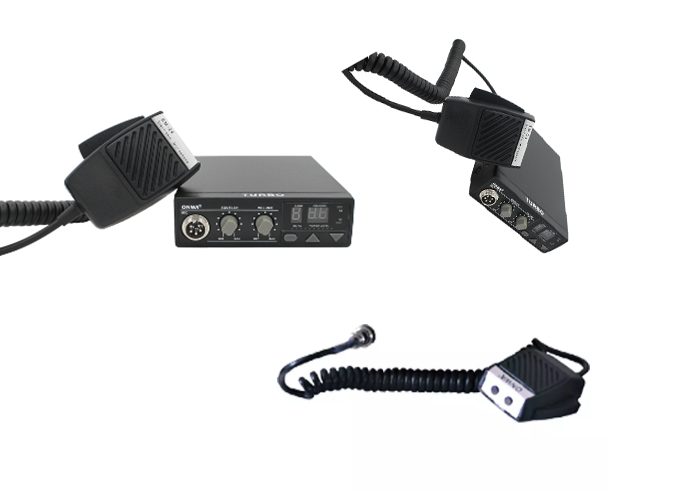
ONWA Marine CB Radios Advantage
In the maritime world, communication is not just about connectivity; it's a lifeline. ONWA Marine CB Radio's approach has wide reach and reliability, cutting-edge features, and advanced technology to serve an array of marine communication needs.Wide Reach and Reliability
The ONWA Marine CB Radio brand embraces the VHF hallmark of broad range and dependable signal strength. Designed for vast marine environments, it ensures uninterrupted communication.Specialized Marine Channels
Adopting the specialized marine channels feature from VHF radios, the ONWA brand offers dedicated frequencies for routine communications and crucial emergency distress calls, making it a versatile choice for all marine communication needs.Integrated Digital Selective Calling (DSC)
Enhanced safety is a cornerstone of this brand, incorporating DSC capabilities for an added layer of security. This feature allows mariners to instantly send an automated distress signal, including their location, making it indispensable for emergency situations.Innovative Features and Design
ONWA brand boasts noise-canceling microphones and Bluetooth connectivity, ensuring clear and convenient communications. Its user-focused design, featuring ergonomic structures and intuitive interfaces, makes it easy for anyone on board to operate.Durability and Resistance
The ONWA brand is built to withstand the harsh marine environment, with a robust build and water-resistant qualities. This radio is designed to brave the elements, ensuring reliability in all conditions.Advanced Technology and Versatility
ONWA Marine CB Radio comes equipped with GPS and sophisticated scanning features, providing users with superior service and operational ease. With both handheld and fixed models available, it caters to the varied preferences and requirements of seafarers.Emergency Features
The ONWA brand doesn’t skimp on safety, including integrated SOS buttons and weather alerts. These functionalities ensure that users are not just informed but secure, regardless of their location at sea.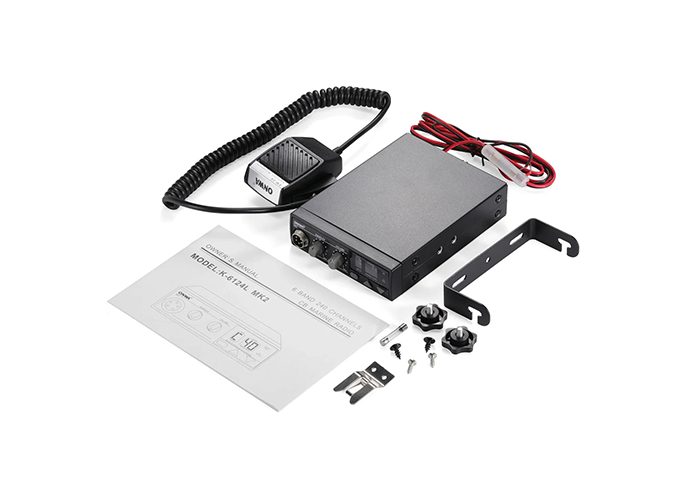
Features to Consider Before Buying Marine CB Radios
When navigating the vast seas of options for CB transceivers, pinpointing the right set of features is paramount for communication, safety, and efficiency. Understanding these features will enable buyers to select the best marine CB radios that cater precisely to their maritime communication needs.Waterproof and Floating Design
- Essential for Durability:
- The marine environment is unforgiving, making waterproof capabilities not just an added bonus but a necessity. Additionally, a floating design ensures that if a radio accidentally goes overboard, it won't sink but can be easily retrieved.
- Consideration of IP Ratings:
- It's crucial to look at the Ingress Protection (IP) rating of marine CB radios, which quantifies their level of waterproofing and resistance to elements.
GPS Integration
- Enhancement of Safety:
- Marine VHF Radios with GPS integration elevate the safety quotient by enabling precise location tracking. This feature is indispensable in emergency situations where providing exact coordinates can lead to faster rescue operations.
- Convenience for Navigation:
- Beyond safety, GPS capabilities offer significant convenience for navigation, allowing boaters to pinpoint their locations relative to ports, landmarks, or fishing spots.
Signal Strength and Range
- Core to Effective Communication:
- Arguably the backbone of any marine CB radio, signal strength, and range determine how effectively it communicates over water. Factors like antenna size and radio power output play critical roles in this aspect.
- Suitability for Open Sea vs. Coastal Waters:
- Consideration must be given to whether the radio's range suits open-sea voyages or is more suited to coastal waters. The Best marine radios will offer a balance suiting a variety of maritime activities.
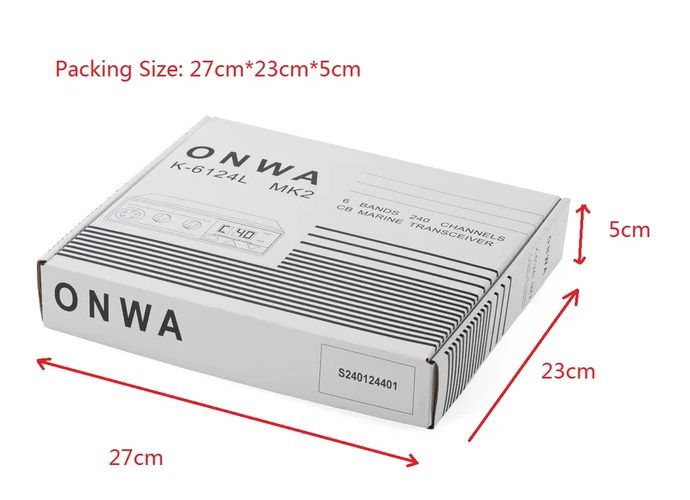
VHF Marine CB Radios and Their Importance
Navigating the waters without a reliable communication tool can be daunting. That's where VHF marine CB radios come in, serving as an essential component of maritime communication systems. Their importance lies in their specialized technology tailored to meet the unique demands of the marine environment, where conventional communication devices might fall short.Critical Advantages of VHF Marine CB Radios
- Enhanced Safety on the Water:
- VHF marine CB radios are at the forefront of ensuring safety because they provide a dedicated channel (Channel 16) for distress calls and emergencies. This can be the most direct line of communication during a critical situation, offering immediate response and coordination.
- Clarity and Reliability:
- Boasting a strong signal that is less prone to interruption by tall structures and rough terrain, CB transceivers remain clear and reliable. This is crucial in keeping communications unimpeded in an environment where every second and every word can mean the difference between safety and peril.
- Legal Requirements and Good Seamanship:
- In many regions, having a VHF marine radio is a legal stipulation for navigating certain waterways. Beyond complying with laws, it's a practice of good seamanship, reflecting a boater's commitment to responsible and prepared sailing.
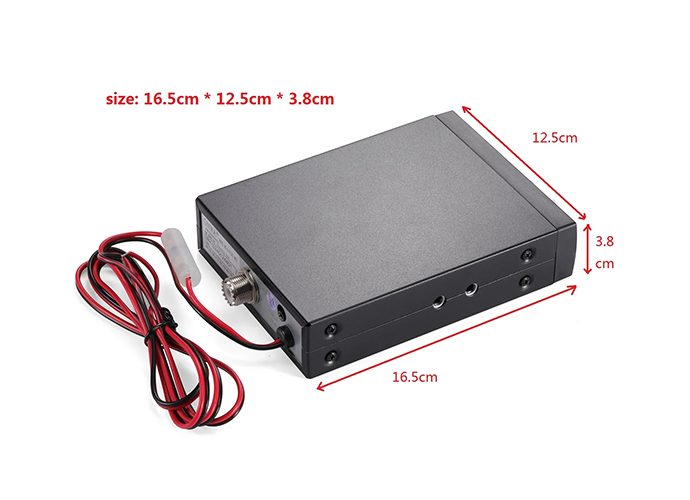
How to Use Marine CB Radios Effectively
Mastering the usage of marine CB radios is not just about operating a device; it's about ensuring seamless, efficient, and lawful communication while out on the waters. This capability is vital for safety, coordination, and in some cases, compliance with maritime regulations. Understanding these facets will enable mariners to leverage their marine CB radios to their fullest potential, ensuring smooth sailing and safe voyages.Mastering Marine CB Radio Operations
- Familiarity with Standard Procedures:
- Begin by acquainting yourself with the basic functions of your marine CB radio, including turning it on/off, adjusting the volume, and switching between channels. Notably, Channel 16 is designated for distress calls and may only be used for emergencies or urgent safety communication.
- Adherence to Guidelines and Regulations:
- Knowledge of and compliance with FCC (Federal Communications Commission) regulations is mandatory for marine CB radio operators in many jurisdictions. While a license isn't required to operate a marine VHF radio in certain countries, including the USA, for recreational boats, staying updated on local maritime laws is crucial.
- Effective Use in Distress Situations:
- In an emergency, clearly and calmly state your situation, location, and the assistance you require. Remember, efficiency in communication can drastically affect the outcome in distress scenarios. Practice the international mayday call protocol to ensure you can quickly attract help when in dire need.
- Understanding the Expected Range:
- Marine CB radios operate most effectively over line-of-sight distances. Topography, antenna height, and weather conditions can influence signal range. Familiarizing yourself with your radio's expected range can help in planning and executing effective communication strategies while at sea.
- Regular Maintenance and Practice:
- Regular checks and maintenance of your marine CB radio ensure it is always in optimal condition. Additionally, practicing with your radio during non-emergency times will make operations under duress more instinctive.
The Role of Antennas in Marine CB Radios
In the world of marine CB radios, antennas play a fundamental role that often gets overshadowed by the main radio unit. From shaping the range of communication to determining the clarity of transmission, the antenna's importance is indeed pivotal.Understanding the Criticality of Antennas in Marine CB Radios
- Determinant of Range:
- The distance your marine CB radio signal can reach heavily relies on the antenna. A high-quality, well-installed antenna can significantly boost your radio's signal range, ensuring effective communication even at considerable distances from shore.
- Influence on Signal Clarity:
- In addition to impacting range, the antenna also affects the clarity of your transmissions. A properly functioning, good quality antenna will ensure clear and stable communication, minimizing the risk of miscommunication or loss of vital info at crucial moments.
- Maximizing Antenna Efficiency:
- Several factors influence antenna efficiency in marine CB radios. These include length, mounting location, and the Ground Plane. Generally, longer antennas provide better range. Additionally, antennas should be mounted as high as possible and in a place with a clear view of the sky for optimum performance.
- Maintenance and Replacement:
- Maintenance checks are critical for ensuring your marine CB radio antenna remains in top working condition. Regular physical inspections for corrosion, damage, or loose connections can help detect problems early. If issues can't be rectified, timely replacement of the antenna is crucial to maintaining effective communication.
High Power Marine CB Radios
When it comes to marine CB radios, high power counterparts present a unique proposition. Defined by their superior strength and extended range, these radios stand apart in terms of their robust performance.Delving into the World of High Power Marine CB Radios
- Remarkable Transmission Strength:
- The standout feature of high power marine CB radios is their optimized transmission power. This increased power allows for stronger, clearer transmissions, which can make all the difference in demanding maritime conditions.
- Extended Range:
- Along with stronger transmissions, high power marine CB radios often come with an extended range of operation. This ensures robust communication capabilities over longer distances, making them an excellent choice for offshore or long-distance sailors.
- Enhanced Safety Features:
- High power marine CB radios often pack additional safety features, such as Dual/Tri-watch or Weather alert capabilities. These functionalities bolster the radio's ability to keep sailors safe and informed in various conditions.
- Optimal in Harsh Conditions:
- In situations where weaker radios may falter due to environmental interference or distance constraints, high power marine CB radios maintain stable, clear communication. This ensures their effectiveness during emergencies or tough weather conditions.
- Operational Considerations:
- It's important to note that high power marine CB radios might use more power, necessitating an efficient power management system onboard your vessel. Additionally, such radios must still comply with relevant regulatory restrictions on transmission power to avoid unlawful operation.
>>Click here view more
